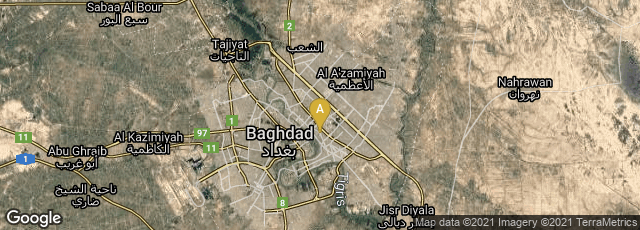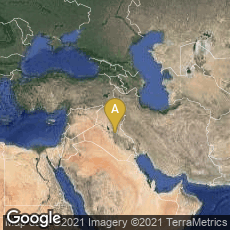

A: Baghdad, Al Saadoon Park, Baghdad Governorate, Iraq
"Most of the surviving Greek literature was translated into Arabic by 750, and Aristotle, for example, became so widely studied that literally hundreds of books were written about him by Arabic scholars. The Moslems also obtained Greek works from Constantinople through regular trade channels and captured others in their various wars with the Eastern Empire" (Harris, History of Libraries in the Western World 4th ed [1999] 78).
That being the case, no scientific manuscripts in Arabic from that period have survived.
"The early Abbasid Caliphs, adopting a religious philosophy that encouraged learning and debate, promoted the establishment of universities and libraries throughout their realm. Early beginnings were made under Al-Mansur (754-775) and Harun al-Rashid (785-809) of Arabian Nights fame, but was Al-Mamun the Great (813-833) who brought the "House of Learning" [House of Wisdom] or university at Baghdad into prominence. With libraries, laboratories, subsidized scholars, a translating service, and even an astronomical observatory, this institution attracted scholars from Spain to India" (Harris 79).